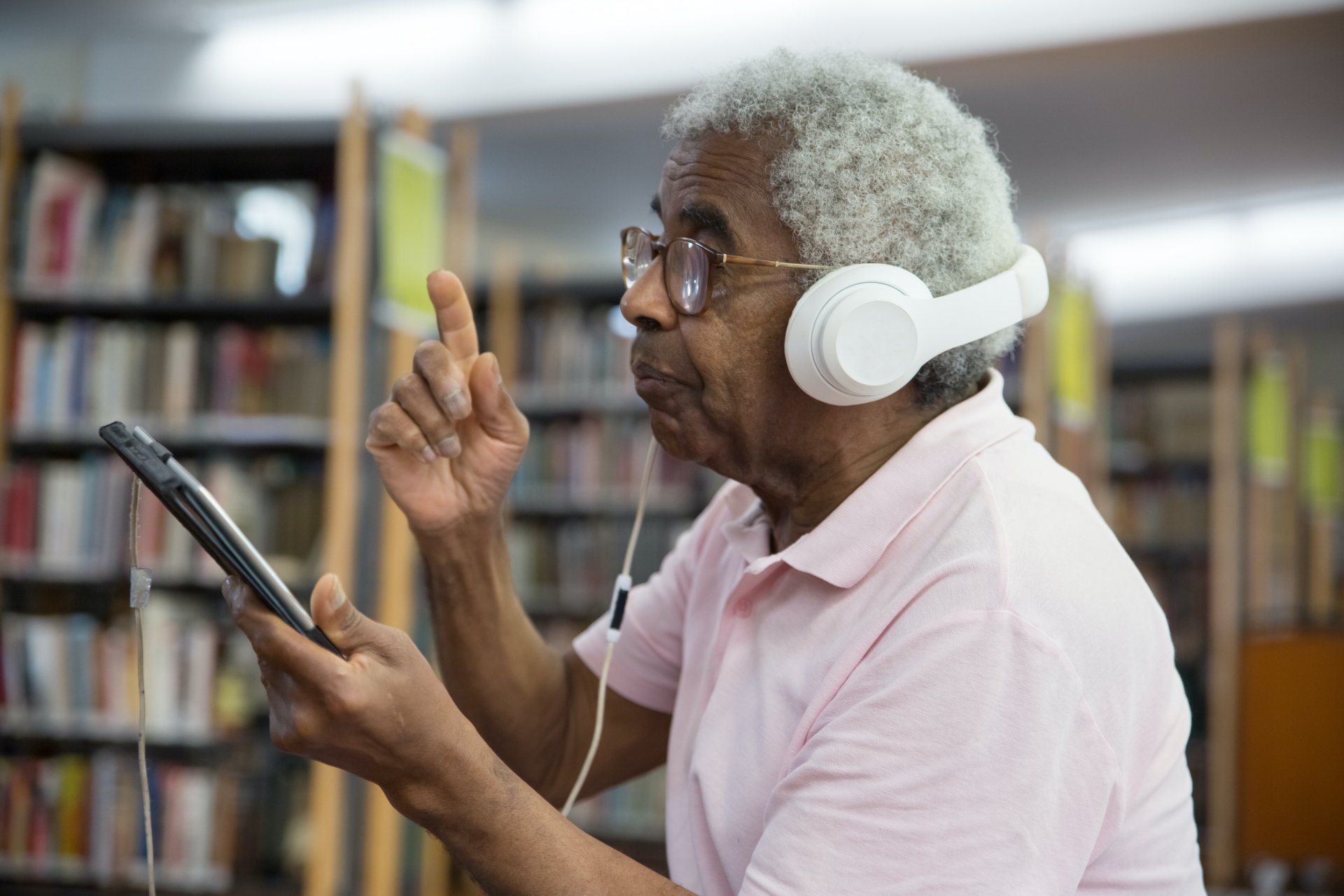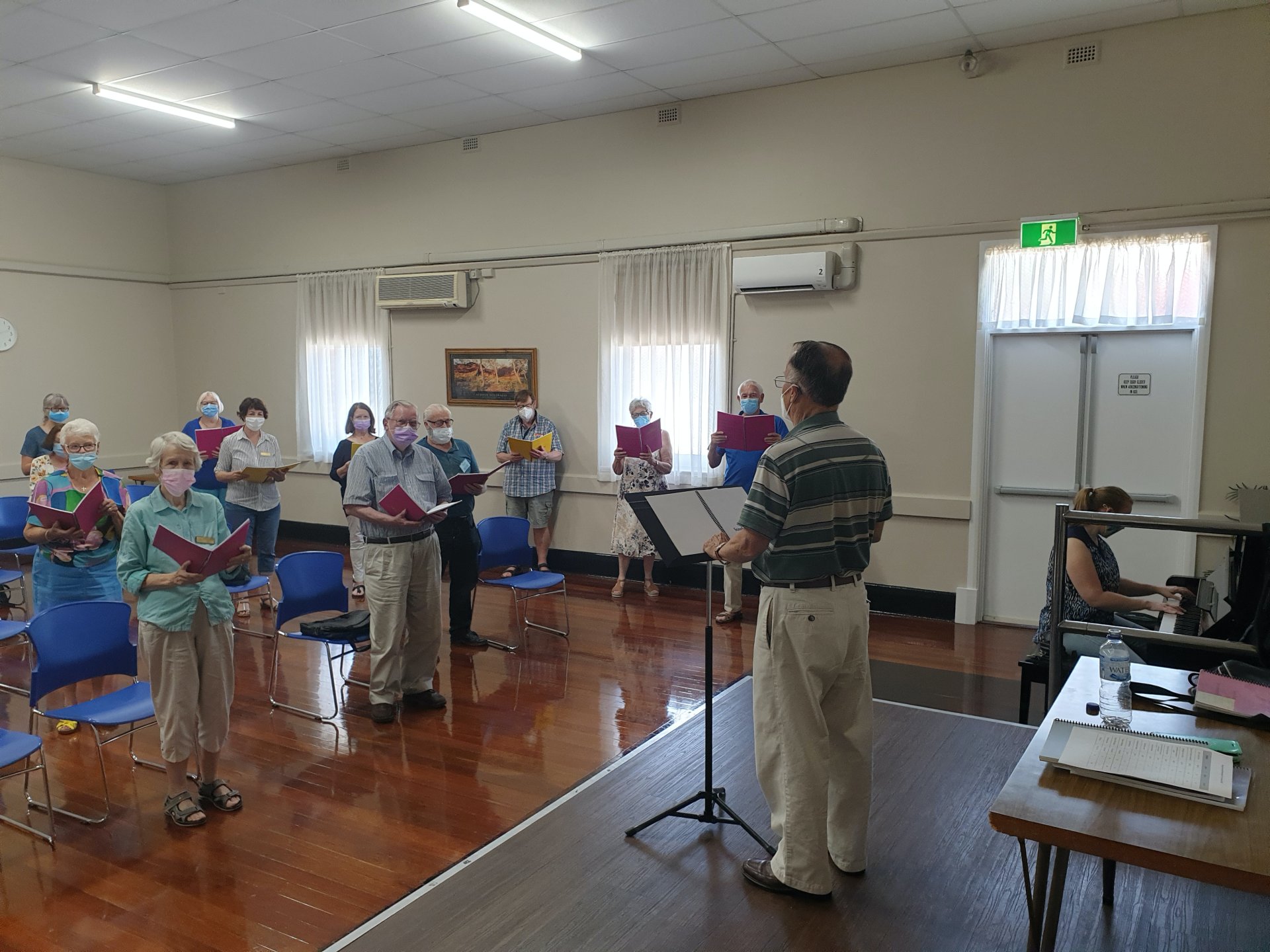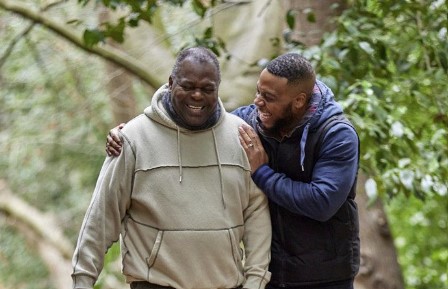Music and Dementia: Therapeutic Benefits
Chelsea Roderick
July 19, 2022
When it comes to the brain, music is incredibly powerful. Hearing – and the auditory part of the brain – is one of the first senses to fully develop, meaning that we can remember sounds and songs from our childhood long before we even learned how to communicate.
The power of music is not lost on the dementia care world, and more and more care professionals and nursing homes are now turning to music therapy to help people living with dementia.
The impact that music has on our day-to-day life is huge; an upbeat song on a day when we are feeling low can almost instantly lift our mood, or a piece of music from our wedding day can send us hurtling back to that exact moment and all the joyous memories it entails. And it is for this reason that music is an integral tool for supporting a person with dementia to feel secure, happy and relaxed, as well as helping to exercise the brain.

Why is Music Used for Dementia and Alzheimer’s Disease?
The auditory system is the first system in the brain to function fully before birth. Therefore, you are receptive and exposed to music much earlier than anything else. As those living with dementia are often able to recall memories from further in the past, music is a perfect way to trigger these memories, evoke strong emotions and spark conversations.
Music has also been greatly utilised as a way to engage with those living with dementia who may have communication difficulties. Recognising familiar music can help to improve someone’s mood significantly and encourage interaction in activities with friends and family members.

What is Music Therapy for Dementia?
Run by music students, therapists, or specialist groups such as Golden Oldies, Lost Chord, Music in Mind, and the Alzheimer’s Society’s Singing for the Brain, music therapy sessions usually involve group music activities such as singalongs and percussive sessions.
The therapists involved say that the sessions are helpful in many ways when it comes to dementia. Not only does music have the ability to stir memories, even for those living in the very late stage of dementia, but the act of enjoying something together in a group also helps people to interact, communicate, and have fun with others. Social activities like these are vital to help work against feelings of loneliness, exclusion, and depression.

How Does Music Therapy Help Dementia?
Music is thought to be highly beneficial for someone with dementia. According to NHS England, engaging in musical activities can help to improve the quality of life for those living with dementia and their carers. Something universally enjoyed, music holds a whole host of benefits from aiding with relaxation to sparking memories.
As a result of music therapy, carers and care homes have reported some incredible and inspiring outcomes. Those living with dementia in the early stages are said to have improved moods and reduced agitation after therapy sessions. While those in the very late stages, who have lost the ability to communicate or move around easily, will often lift their heads and engage with others for the first time in a very long period of inactivity.
Playing music during the evenings can even help combat sundowning, which is when a person with dementia may feel particularly restless or exhibit signs of anxiety or confusion during the evening. Playing soothing music is the best option in this case.
One music therapist remembers a lady who had once been an organ player but had now lost the ability to speak or recognise anyone. Upon hearing someone singing a favourite hymn, the therapist recalls, the lady was able to sit at a piano and accompany the singer perfectly.
Here are some commonly understood therapeutic benefits of music for dementia:
Reminiscence
As previously mentioned, music has strong links to memory as the auditory senses are one of the first to develop, which means we have a whole host of memories closely tied to sound. You can use music familiar to your loved one to encourage them to share memories they associate with it. Recalling past happy memories can really lift the mood of those living with dementia and provide a sense of accomplishment.
Relaxation
Listening to calming music can be soothing for the majority of us, and this is especially true for those living with dementia. Why not choose some calming, soothing sounds to help your loved one relax, or perhaps opt for music you know they love, which may ignite memories - this can also be comforting for them.
Sensory Exploration
Sensory exploration has been proven highly beneficial for those with dementia, as the more often they engage with their senses, the longer they generally use them. Music not only stimulates the auditory senses but can also be used to encourage the use of other senses.
Whilst simply listening to music is brilliant, other activities such as singing - combined with dancing - can be an excellent mood-boosting activity, as well as getting light exercise and encouraging social interactions.
Communication
Communication can sometimes become difficult as someone progresses along their dementia journey, so anything you can do to open up a conversation with your loved one can be beneficial. Listening to music in a group setting is the perfect way to do this; it will encourage dialogue and help combat feelings of isolation and loneliness.
Why not ask gentle questions about a particular song, talk about memories surrounding a piece of music, such as their wedding song, or simply just listen to music together and see if your loved one volunteers stories or memories.
Dementia and Music Activities
Music is so versatile; you can incorporate it into several different activities. To encourage reminiscence, why not play music whilst looking through a memory box. If you link the music to the photos, this can help to spark memories and encourage conversations.
You can also play a familiar seasonal soundtrack during Christmastime, which might bring back memories of happy past Christmases. See our Christmas playlist.
Another way to encourage conversation is to organise a group listening session where everyone can get involved and discuss the music being played. See our Name That Tune group activity. Another brilliant activity is to watch a film with a strong soundtrack, as this engages the senses along with aiding in reminiscence.
Remember
Music can be a very powerful tool for those living with dementia, helping to bring back positive memories from long ago and promote a sense of wellbeing. Help your loved one reconnect to their favourite songs and music from important moments in their life.
Our Dementia Radio is Designed For An Easy Listening Experience
If your loved one is having trouble accessing the music they love using conventional technology, then our Dementia Radio may be the right option for them. It boosts independence with unique programming, an easy-to-use control panel and large buttons. Read more about the benefits of dementia-friendly radios here.





